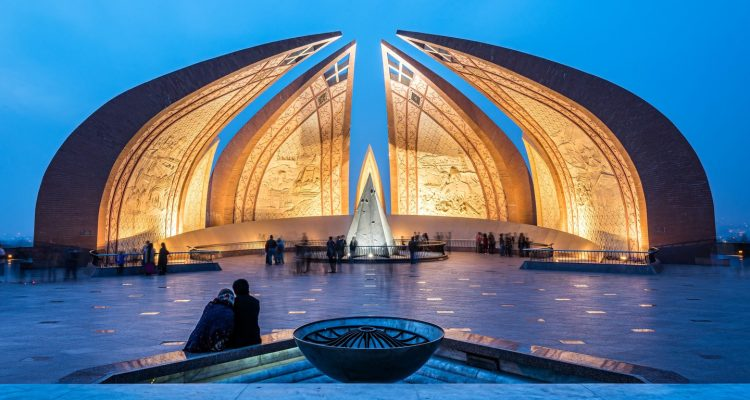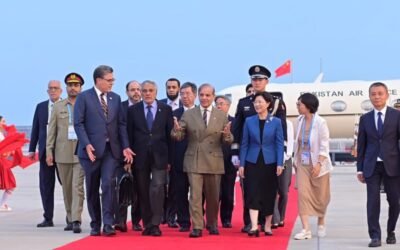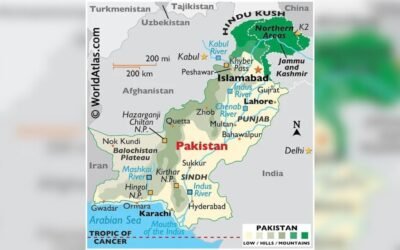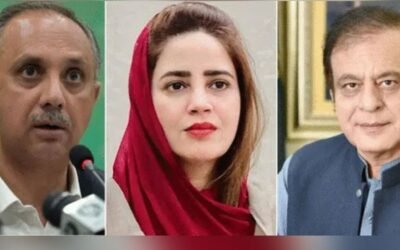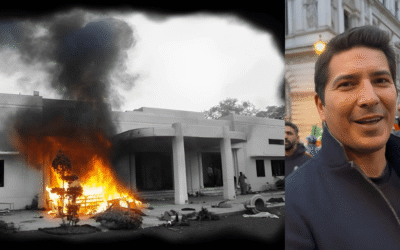Pakistan’s cultural assets, including Sufi music, vibrant literature, distinguished drama productions, and cinematic talent, are a potential goldmine for global influence. As former envoy Maleeha Lodhi emphasized in Dawn, Pakistan has the opportunity to integrate these assets into its foreign policy, enhancing its international standing. While India, Turkey, and South Korea have successfully built global cultural brands, Pakistan’s efforts, though currently fragmented and underfunded, have the potential to match or even surpass them.

Source: Dawn
India’s Bollywood vs Pakistan’s Quiet Cinema
India’s Bollywood dominates global cinema, reaching millions with high-budget productions, dance, music, and storytelling. Its films have shaped perceptions of South Asia worldwide and support India’s broader diplomatic and economic objectives. In contrast, Pakistani cinema and dramas remain largely confined to local or diaspora films. Political bans and limited promotion prevent them from crossing borders, despite Pakistani actors and musicians like Atif Aslam, Mahira Khan, and Rahat Fateh Ali Khan gaining popularity in India and abroad.
Turkey’s Drama Diplomacy: Ottoman Heritage on Screen
Turkey has effectively utilized its historical dramas, such as Diriliş: Ertuğrul, to project its heritage, religion, and modern identity internationally. Cultural diplomacy is supported by institutions such as TIKA and the state, which disseminate content globally, particularly in the Muslim world and Africa. Meanwhile, Pakistan has not produced analogous historical or global-level dramas, nor has it maintained traditions such as the Shalimar TV Festival, which once showcased Islamic world media in Lahore but ceased after regime changes.
South Korea’s K-Wave: Music, Drama, and National Brand
South Korea’s Hallyu Wave encompasses K-pop, K-drama, film, fashion, and education diplomacy. Products like Squid Game and artists such as BTS and Blackpink transcend cultural divides. Government programs, including the Global Korea Scholarships and KOCIS-sponsored festivals, have amplified this impact. However, Pakistan lacks a comparable entertainment export policy or systematic scholarship schemes, which limits its ability to reach global audiences.
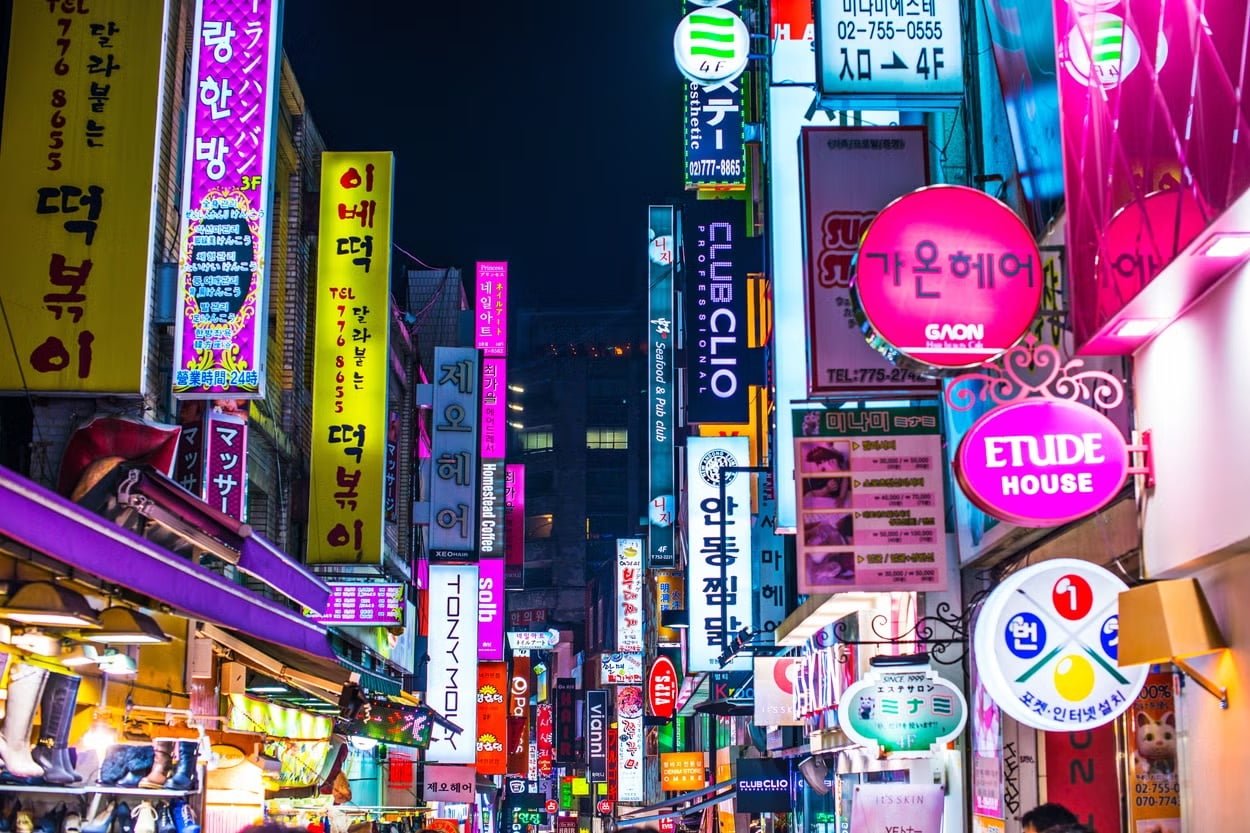
Source: Alamy
1. Lack of Strategic Vision and Coordination
Despite symbolic campaigns and diaspora efforts, Pakistan’s soft-power strategy urgently needs a central coordinating body. The absence of strategic direction and institutional inertia within the Foreign Office and culture ministries greatly hampers sustained internal and global outreach. Cultural diplomacy must shift from ad hoc measures to a systemic approach, and this requires prompt action.
2. Insufficient Investment in Media and Festivals
Pakistan hosts significant cultural events, such as the Karachi Literature Festival, and has a growing indie cinema scene; however, these remain largely local rather than global platforms. Resources and promotion are inadequate, limiting their reach beyond Pakistani audiences and the diaspora.
3. Creative Limitations and Censorship
Pakistani users have voiced that repetitive family-drama storylines struggle to connect globally. Censorship and moral policing hinder creative innovation, making it difficult to produce engaging content for international audiences. Discussions on social media highlight that Pakistan seldom experiments beyond traditional themes, which limits its cross-border appeal compared to new stories from Korea or Turkey.
4. Negative Narrative and Diplomatic Isolation
Pakistan’s image remains tied to security concerns and political instability. Even strong cultural products struggle to break through due to perception issues. India’s soft power is partly built on narrative projection, festivals, tourism, and outward-facing content, which reinforces an attractive global identity.
Promising Initiatives: Culture That Reaches Borders
There are signs of growth. Pakistani dramas, such as Adhi Bewafai, are gaining traction in India through platforms like YouTube and ZEE5. These shows offer authentic insights into Pakistani life through relatable plots, helping to break down cross-border stereotypes despite official bans. Coke Studio’s fusion music has earned global respect and showcased ethnic and linguistic diversity as soft-power tools. Pakistani artists, such as Rahat Fateh Ali Khan, performing in Dhaka, reflect a rising soft-power diplomacy with neighbors.
State Achievements So Far
The government has taken early steps:
- Hosting cultural events abroad (e.g., UN concerts, cultural stalls, Eid celebrations) enhances Pakistan’s image.
- Scholarships to Afghan students and diaspora engagement demonstrate budding academic diplomacy.
- Provincial governments support heritage festivals and exhibitions, although their scale and international exposure remain limited.
Recommendations: A Culture-Led Transformation
To rival India, South Korea, and Turkey in cultural diplomacy, Pakistan should consider:
- Establishing a National Cultural Diplomacy Council under the Foreign Office is crucial. This council would not only coordinate strategy, investment, and evaluation but also serve as a platform for fostering collaboration and innovation in Pakistan’s cultural diplomacy efforts.
- Investing in Film and Drama Exports is a strategic move. By promoting high-quality series and films with cross-cultural appeal and international distribution agreements, Pakistan can greatly expand its global cultural influence and reach a larger audience.
- Reviving International Festivals: Relaunch initiatives like the Shalimar TV Festival, Karachi Literature Festival abroad, and joint Pakistan-Turkey historical drama projects.
- Cultural Scholarships and Exchange: Build on Afghan student programmes; expand scholarships to young talent globally, replicating Korea’s model.
- Expanding Diaspora Networks: Embassies should host regular Pakistani-Muslim cultural exhibitions, music nights, and Sufi events abroad.
- Strengthening Digital Platforms: Support creators on YouTube, streaming services, and social media under national branding like #DiscoverPakistan.
- Encouraging creative freedom is vital for the growth of Pakistan’s media landscape. By adopting a more balanced approach to content regulation, Pakistan can foster storytelling that reflects diverse human experiences, nurtures new talent, and resonates with both local and global audiences, enhancing the country’s cultural presence and soft power internationally.
Pakistan has rich cultural assets that remain underutilized as tools of soft power. While the government has taken some positive steps, such as hosting international concerts and cultural events and engaging with the diaspora, these efforts are inconsistent. As India’s Bollywood, Turkey’s drama diplomacy, and South Korea’s K-wave show, sustained investment, strategic planning, and creative freedom are essential.
By placing culture at the core of public diplomacy—through coordinated festivals, narrative-driven media, scholarships, and digital outreach—Pakistan can reshape its global image. With purpose and investment, culture can become a vital element of statecraft, enhancing Pakistan’s international profile and soft-power influence for the better.

